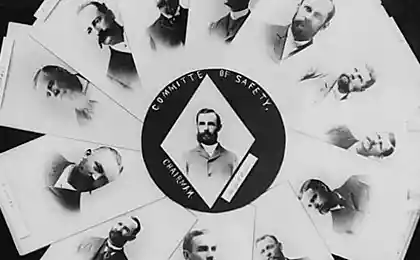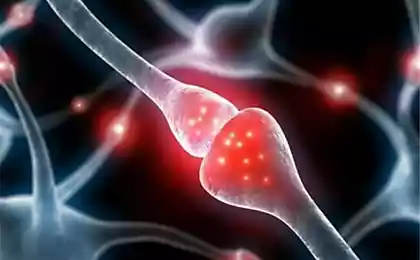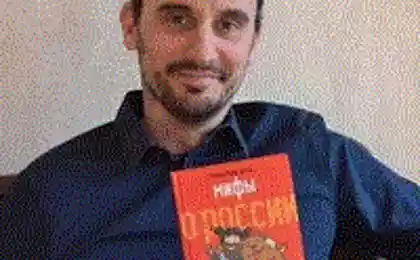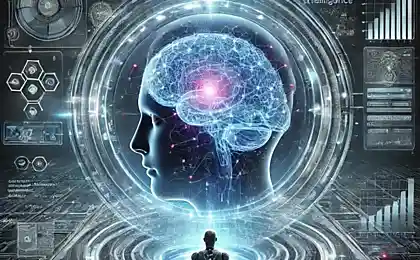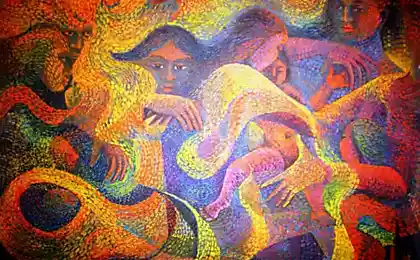6 new facts about people

Alexei Alekseenko, chief editor of the "Snob", wrote a terrific article about discoveries in the field of human psychology and society.
blockquote> The most obvious way to learn more about the people - just watch them and make conclusions for themselves. However, this method does not always work without misfires. In recent years, observing the behavior of people - with the help of the TV or the Internet, for example - many do not come to meaningful conclusions as to the lapidary fragments of thoughts, "trample trash", "shoot", "burn everything is napalm." Make no mistake: this is not any thought, in the form of a verb infinitive; anything important, you do not understand.

To avoid this cognitive trap, the scientists approach the study of people in another way: put-designed experiments and interpret their results. Some interesting scientific papers about people (and their relatives), published in the past month, we'll tell you.
And just start by saying how we did this strange emotional reaction ("crush the vermin!" And so on. P.), With which we began talking. Or a little wider: why people refuse to tolerate dishonesty.
1. Why the dishonesty enraged? By this curious question we have addressed a couple of years ago. Then it was the so-called game of "ultimatum." Recall the story: take two subjects and offer one divided into two some money. The second carve-up can either accept or reject - if he rejects, nobody gets anything.
From a rational point of view, to reject the carve-up unprofitable: surely find yourself a loser, how little do not you owed as a result of unjust carve. Nevertheless carve subjects typically rejected when less than 20% is obtained amount. In our words, they are "offended».
Where did (evolution) is an irrational resentment, not benefiting neither the offender nor the offended? Me and the very long tormented the question. Why offended the animal leaves the pack, putting themselves at great risk? Why are national-traitors jubilant, seeing the euro at the level of 53 rubles, although he receives a salary in most of these depreciating rubles? Why he prefers to go to the bottom together with the Russian State, only to the most deserved historical statehood suffered retribution for lawlessness in 2014?

This topic is dedicated to a recent review in the journal Science. There's finally everything explained and laid out on shelves. From the review we find that injury is only a small part of a large and important phenomenon - inequity aversion, or the rejection of injustice (HH).
In summary, the experience looks like. Two individuals are involved in some activity and then reward. If one of them gets a much smaller share than the other, he sometimes rejects the award and refuses to participate in this activity. This "primary NN", which we often call the offense. This reaction is observed not only in humans: grudge can be observed in most mammals and even in birds.
There is also a "secondary LV", which can also be called noble indignation: the game refuses to play just one of the subjects, who gets more. He just hated inequality, even if it is on the side of the privileged. In contrast to the HH-1, or resentment, the LV-2, or righteous indignation, observed only in some primates. Thanks be to heaven, we are (at least some of us) among them. The origin of this sense it is quite clear: to give up a larger share of highly unreasonable, and how evolution might appear a noble but impractical impulse?
The authors of the review, fortunately, there is a hypothesis on this subject. They think that it all makes sense, if we proceed from the fact that living beings are involved in long-term cooperation. They may not expect immediate benefits, but expect to benefit from the cooperation in the distant perspective. Species exhibiting HH-1 (offense) renounces little immediate benefit simply because dishonest carve cast doubt on the feasibility of long-term investment in the partnership. It's better to leave this flock of vile and petty tricksters week wander through the woods alone, cold and hunger, but then may have come to a more honest company where your work will contribute more reliable dividends. Em>
Surprisingly, the LV-2 (righteous indignation) explained in a similar way. The specimen was prepared by divvying up of franchise, it captures immediate profit, but sees discontent partner. There is a risk that the partner will be offended and will of cooperation. Does it make sense to invest in long-term cooperation, which at any time may be interrupted due to the resentment of the partner? It may be better to protest? And until it is too late to restructure the system so that all participants were more interested in cooperation?
Explanations authors sound logical, it seems to me. Though in Russophobic. In general, it seems to me, each day opening various humanities are becoming increasingly anti-Russian. Something is wrong with these sciences ...
2. How do people sacrifice themselves? Perhaps the main problem of the humanities and the reason for their anti-Russian - is that scientists do not have anything sacred. So David Rand of Ieylskogo University swung at shrines - decided to investigate the psychological roots of selfless heroism.
< The researcher analyzed the stories of people who have committed in my life some heroic act such as saving a kitten from a burning house. As a control, we were taken the stories of those same people about the situations in which they have some rational decisions, as well as approval of their spontaneous actions.
All statements were reviewed and evaluated on a scale of complete spontaneity to complete mind control. It turned out that the stories about the exploits are at the lower edge of the scale: that guided these people, reshivshimisya risks for neighbor niskolechko not like the "rationalization" and is no different from "intuition». "Extreme altruism is associated with a greater risk, overwhelmingly motivated by involuntary, intuitive process," - this conclusion does the author.
3. How to make git nice cat? The correct answer, of course, "no." However, it is possible to make the villain makes a good impression. This is the main conclusion of the work of scientists from the University of York. They are statistically processed images of persons group of subjects considered more or less attractive and pleasant. It turned out that almost 60% of the range of estimates can be reduced to a small variation of a few facial features (such as the mouth and bending distance between the eyes).
Then the researchers mounted roller, painted on the changing face of a generalized computer in accordance with the derived rules.
You may notice that the image is a character in the beginning of the video is very nice, by the middle of becoming a dominant and aggressive, and at the end again softened and transformed into a mumbled. Where can I practice using this information, you may ask? Naturally, the organization of election campaigns: you just need to work a little in Photoshop with a photo of your candidate.
4. Why go up? Got a permit question tormenting many readers from school lessons of military training and military training institute. What seemed a waste of time to drill, it was suddenly a sophisticated form of psychological manipulation.

Researchers have proposed subjects (men) walk along a certain distance - relaxed gait piecemeal or together at a measured pace. After this test was given to consider photos of people ("They are dangerous criminals!" - Warned the experimenter). And then we asked them to assess the height, weight and physical strength scoundrels.
It turned out that those who had just marched in unison with the left-right, appreciated the "villains" are much lower than relaxed strolling control individuals. Like, do not niskolechko scary, snot pereshibit, a cocked hat. «The synchronized movements, such as marching, increase in higher primates confidence", - concluded the psychologists. A self-confidence needed to strengthen national sovereignty. How's about "Iskander" -That on t-shirts? Here, it seems, someone peremarshiroval little.
5. From the fashion to help others? If you, as the author of these lines, there are two dogs and a cat, you're probably faced with a situation where the cat throws to the floor slab pan with cutlets, sobachenki to feast on. This is an example of altruistic behavior in animals. The debate about where there was altruistic behavior (ie how the altruism gene turned out to be supported by natural selection), - one of the busiest and uncompromising in modern ethology and psychology.
The authors, zoologists from Switzerland and other European countries have decided to approach the solution of this problem methodically. They took the 15 primate species differ in their habits and lifestyles. The monkeys were tested for unpretentious setting: the instrument has been designed so that with the help of one of the monkeys could provide the other (located in an isolated bay) tasty treat. The first monkey in this case nothing, and the other had no means to influence the process. Thus, the behavior of the first monkey was an example of pure altruism.
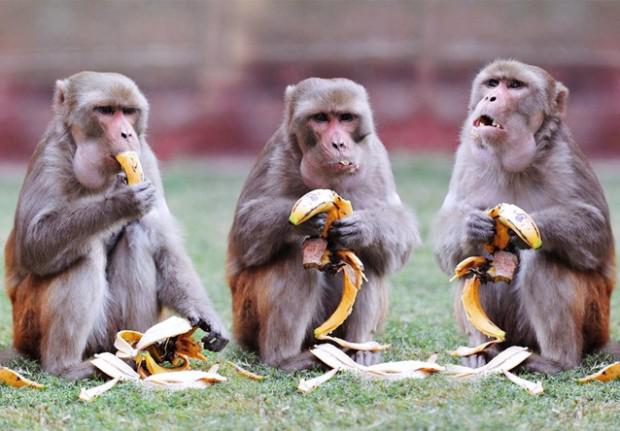
Different types coped with the task with varying degrees of success. But here's the curious thing: the researchers examined the correlation altruism with other habits of these creatures, and found that the most altruistic species that raise their young together. The correlation was linear and surprisingly powerful. However, other parameters of the population, such as a tendency to collective hunting, group size, stability, social ties or even the size of the brain - not the slightest influence on altruism is not provided.
The authors conclude that roots of human altruism should be sought at this stage in history when one of your grandgrand (...) grandmother asked her friend to look after the children while she was absent himself on the farm. Savannah (where our ancestors some point emerged from the thicket of the forest) - a dangerous place where you can not leave children unattended.
A popular account of this work can be found in the journal Science.
6. Can you believe the scientists? Now that you have learned so much about myself, it's time to ask the question whether it is possible to believe studies that people study people? Maybe they are simply doomed to bias, and all this is your modern psychology - just an exercise in self-deception? Unfortunately, a recently published work makes to admit that in this nihilistic point of view there is a certain truth.
The authors were subjected to statistical analysis of thousands of articles on experimental psychology. They analyzed the sample size (number of subjects), the magnitude of the observed effect, correlations and other numerical parameters set forth in these studies.
The result is sad. Firstly, the negative correlation observed between sample size and the magnitude of the effect. That is, when researchers take a little test, they see a great effect; take more subjects - has less effect. If they took many, inordinately subjects (of all people on earth, because that is what they eventually wonder?), There would be no effect at all, so that story to write about.
Secondly, there is such a setting - the level of reliability or "confidence level". This is the likelihood that this result could be due to coincidence. It is generally believed that if the probability is less than 0, 05, then it makes sense to trust the data. Well, just so we agreed to have the ceiling: at least five percent - consider, ruled an accident. Well, the analysis of thousands of jobs found obscenely large proportion of the results, significant at the level of "slightly better" searched five percent. That is obvious if not manipulation of the data, or at least unconscious of their tightening by expectations of the scientific community.
So judge for yourself whether or not to trust the work of scientists. And especially our scientific and popular paraphrases.
However, this last section, we added in our survey for reasons of scientific integrity: that nobody accused us that we manipulate the opinion of readers. The researchers - yes, can sometimes lie. But we popularizers, you warned about this; therefore, we believe something is possible. em>
via factroom.ru





